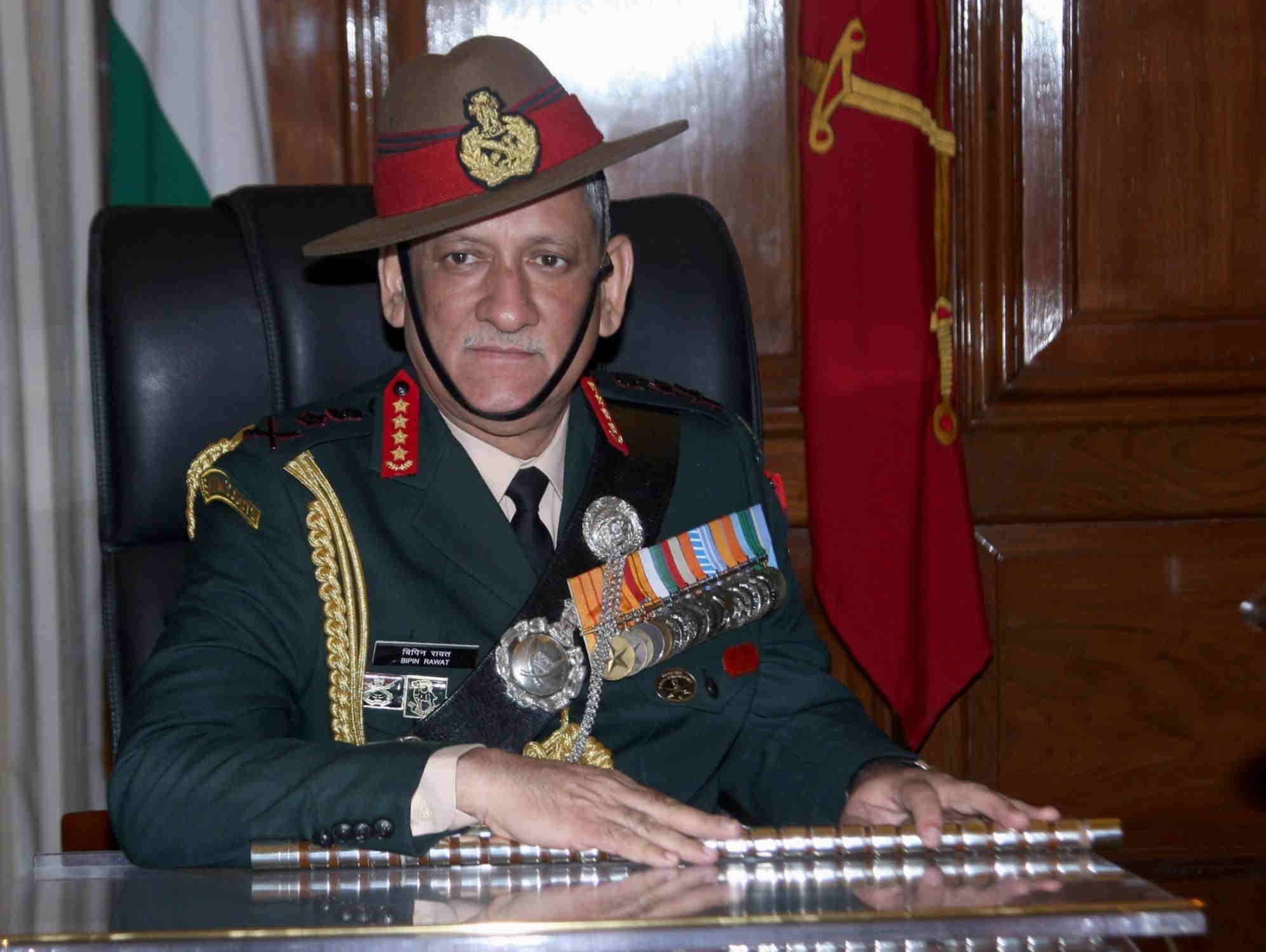

Chief of Defence Staff Bipin Rawat
<p>
India has added urgency to establish theatre commands which can fight two-front war with Pakistan and China, over land and sea including the Indo-Pacific region.</p>
<p>
&quot;We must prepare for threats for military primary arising from China and Pakistan. In the future, China will continue to assert itself seeking to establish dominance in states surrounding India and the Indian Ocean region,&quot; said India&rsquo;s first Chief of Defence Staff Bipin Rawat during a military seminar on Thursday.</p>
<p>
By pointing to the Chinese threat in the Indian Ocean Region (IOR), General Rawat appeared to dock India&rsquo;s upcoming peninsular theatre command with the broader Indo-Pacific strategy, to enable combat in a regional war.</p>
<p>
A broader appreciation of the Chinese threat in the Indo-Pacific, involves leveraging the strategic location of the Andaman and Nicobar Islands to project power on either side of the Malacca straits&mdash;the vital trade choke point that links the Indian and the Pacific oceans.</p>
<p>
&quot;We must effectively also leverage the opportunity provided by our Island territories which enables us to extend our reach, orchestrate our defence strategy and also provide depth to the mainland,&quot; he said.&nbsp; Gen. Rawat stressed in his address at the seminar how India needs to develop capacity to fight joint war in partnership with other forces.</p>
<p>
With joint combat in partnership with friendly powers in view, India is focusing on developing its island territories at Andaman and Nicobar chain to acquire military heft that can make an impact along the 10 degree and six-degree channels. The 10-degree channel which separates the Andaman from the Nicobar Islands and the six-degree channel further to the south are major trade channels for commercial shipping heading for the Malacca straits.</p>
<p>
These island territories are central to India&rsquo;s broader Indo-Pacific strategy being jointly developed with Japan, Australia and the United States, forming what is called the QUAD coalition.</p>
<p>
In developing an enhanced capacity in the island territories, the formation of the Peninsular command dialoguing with the partner countries would be key in deterring Chinese assertiveness in the Indo-Pacific region.</p>
<p>
Appreciating the big picture of a rapidly evolving region, Gen. Rawat stressed that India&rsquo;s military leadership will have to &ldquo;more than match the political vision&rdquo; that has mandated the creation of theatre commands to address future security threats.&nbsp;</p>
<p>
&ldquo;It will not be easy and the transition to theatre commands will indeed be a challenging process. There is a need to create and propagate the narrative of strategic advantages that accrue at the national and armed forces levels (with theaterisation),&rdquo; Gen. Rawat said on the eve of a top commanders&rsquo; conference where Prime Minister Narendra Modi is expected to make a much anticipated statement on March 6.</p>
Israel's Ministry of Foreign Affairs (MFA) issued a strongly worded statement categorically rejecting the claims…
A twin turboprop Antonov An-24 passenger plane carrying 47 people, including five children, went missing…
British Prime Minister Keir Starmer will host Prime Minister Narendra Modi in the UK on…
The top brass from India and Israel held a bilateral meeting in New Delhi on…
Prime Minister Narendra Modi expressed gratitude for the enthusiastic reception given by the Indian community…
The Baloch Students Action Committee (BSAC) conducted a press briefing in Quetta to draw attention…